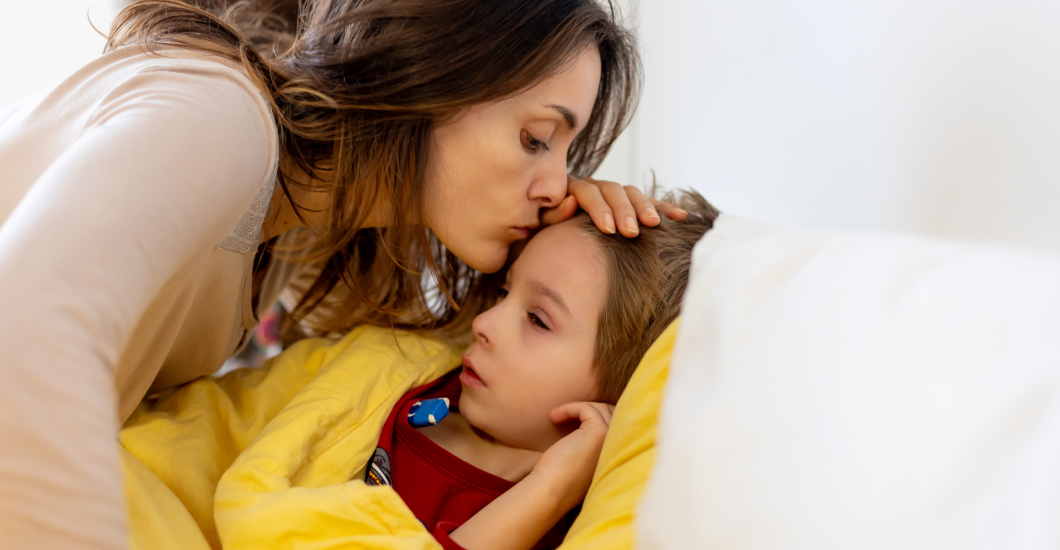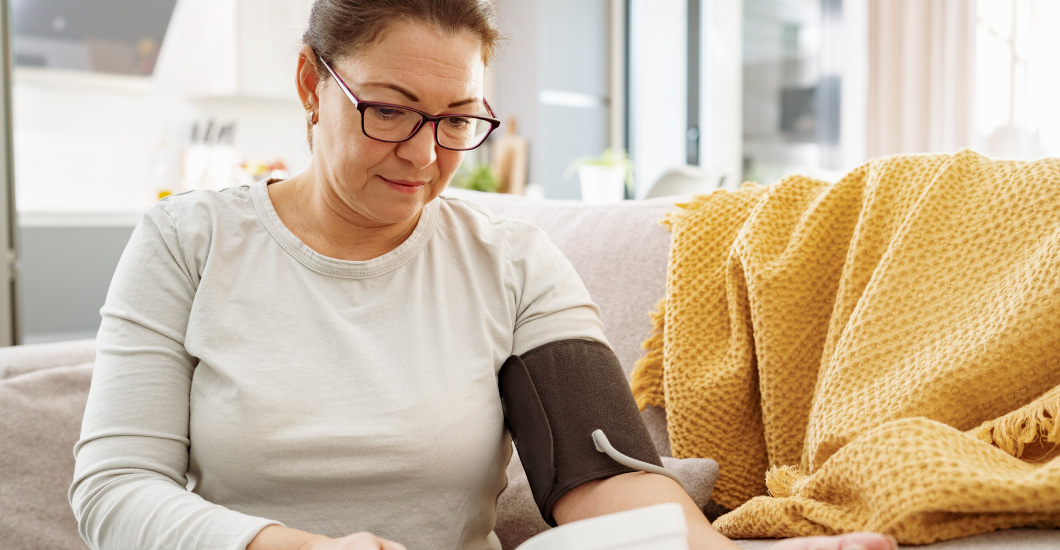In Latin America, taking care of a child with a fever doesn’t start at the pharmacy—it starts at home, with mom’s remedies and grandma’s advice. Here are some of the most common home treatments and how to use them with confidence—plus, when it’s time to see a doctor.
1. Cool cloths on the forehead
A classic in almost every Latino home. Wet a small towel with cool (not cold) water and place it on the child’s forehead to help cool the skin and lower the fever. You can repeat this every 20 minutes.
2. Lukewarm baths
Letting your child soak in lukewarm water (never cold) for about 10 to 15 minutes can help bring the fever down naturally. Just be sure to dry them off completely afterward to avoid chills.
3. Chamomile or mint tea
These gentle herbal teas can help relax your child and may ease discomfort related to fever. Offer them warm (not hot) to children over one year old.
4. Chicken and vegetable soup
More than just comforting, homemade chicken soup helps keep your child hydrated and nourished while they recover. You can make it with chicken, carrots, potatoes, and a little onion and garlic for flavor.
5. Eucalyptus or basil leaf compresses
In some regions, families boil eucalyptus or basil leaves, let them cool slightly, and use them as compresses on the forehead or chest. The soothing scent can also help clear up stuffy noses.
6. Keep fluids coming
Make sure your child drinks plenty of liquids—like water, natural juices, coconut water, or oral rehydration solutions—to prevent dehydration, which can make a fever worse. Breastfed babies should be nursed more often.
When to worry: signs you shouldn’t ignore
While many fevers get better with home care, there are times when it’s best to get medical help. Watch out for these warning signs:
- Fever lasting more than 3 days
- Any fever in babies under 3 months, even if it’s low
- Excessive sleepiness or trouble waking up
- Extreme irritability or nonstop crying
- Refusing to eat or drink anything
- Trouble breathing or very fast breathing
- Signs of dehydration (dry mouth, no tears when crying, fewer wet diapers
With Sanitas, you’re in good hands
If you notice any of these symptoms, don’t wait—reach out for help. At Sanitas, we understand the value of traditional home remedies, but we also know when it’s time to step in with professional medical care. We’re here to take care of you and your little ones.



